Marine farming encompasses many values.
Associate Professor, Dr. Nguyen Huu Dung, Chairman of the Vietnam Seafarming Association, proudly shared that Vietnam is perhaps the only country in the world that calls its Fatherland by the two words “country”. The words “mountains and rivers” or “river” are both “land” and “water”. These two elements make up the life, identity and soul of the nation.
But in the journey of development, it seems that we have been paying too much attention to the land and neglecting the water. For the water, people think of fishing and exploiting the natural products. Therefore, it is time to focus on cultivating the water, not just stopping at exploiting the sea. Marine cultivation is a prerequisite for the country to be able to move up to a double-digit growth rate in the new era.
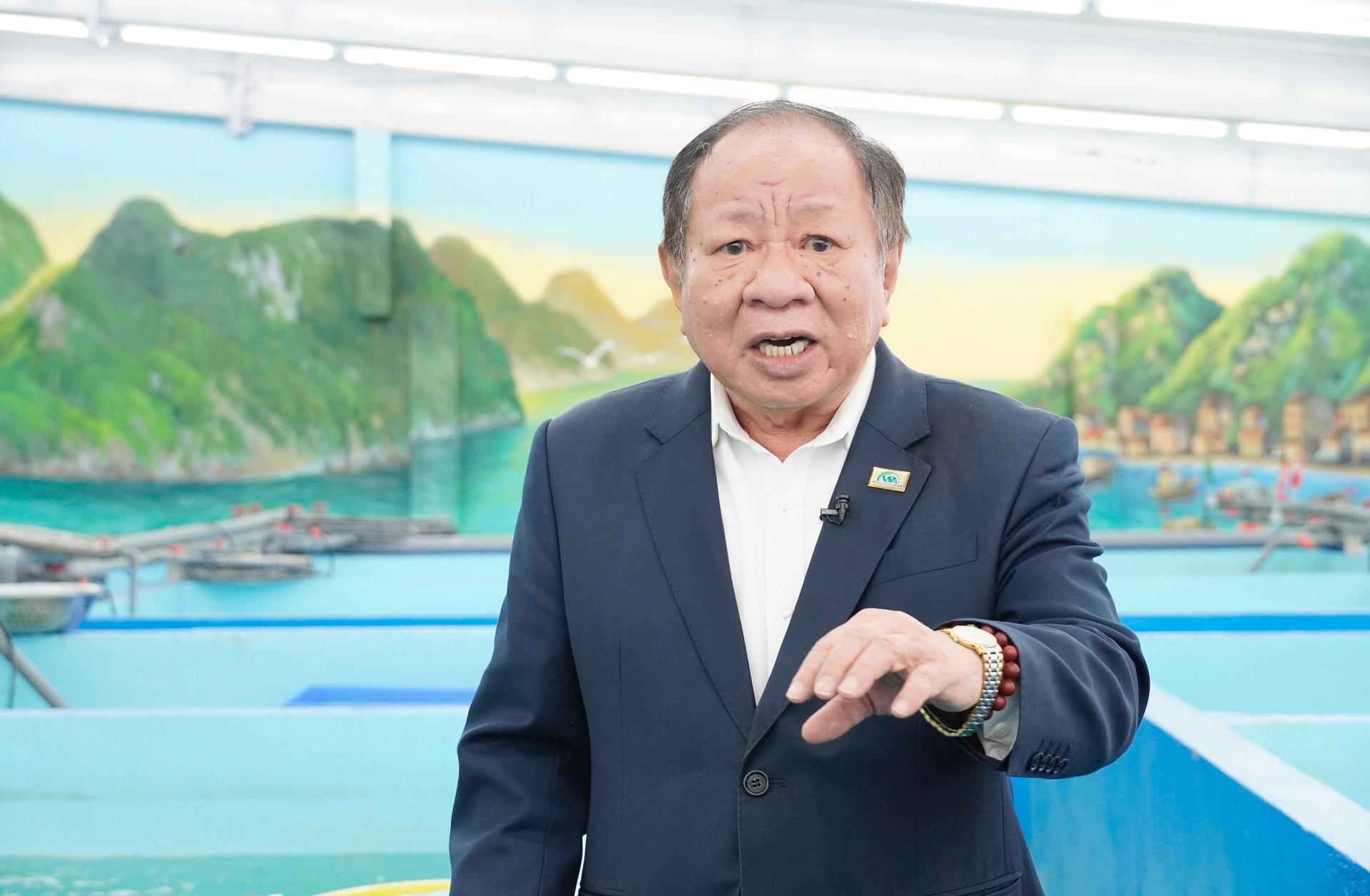
Associate Professor, Dr. Nguyen Huu Dung, Chairman of the Vietnam Marine Aquaculture Association, emphasized: "Marine aquaculture is not only about aquaculture at sea, but it also has a broader meaning, in addition to economic meaning, it is also about the environment, ecosystem, society, community and culture." Photo: Hong Tham .
Marine farming means raising and cultivating aquatic species, but above all, raising the environment, ecosystems and natural values within them. Aquaculture farmers have long had the saying “raise water before raising fish”.
Marine aquaculture is essentially “water farming” – nurturing the environment, maintaining the balance of the ecosystem and marine biological community. When the water environment is clean, stable and healthy, fish can grow and the sea can revive. Therefore, marine aquaculture is not only aquaculture at sea but also has a broader meaning, in addition to economic meaning, it is also environmental, ecological, social, community and cultural.
Associate Professor, Dr. Nguyen Huu Dung, Chairman of the Vietnam Seafarming Association: “There is no need to send too many people to the sea, but to bring technology, data and digital to the sea. Cultivation at sea but management on shore - that is the trend of modern marine farming”.
Mr. Dung said that in fact, for the past 30 years, we have been calling on fishermen to go to sea, but it has only stopped at calling. There are no specific policies, no clear regulations, standards or laws, nor is there any form of organization strong enough to bring people to cultivate the sea in a systematic way. The current picture of marine farming is still fragmented, manual, low-tech, small-scale competition, causing harm to the environment and to ourselves.
Meanwhile, in the world, the United Nations has clearly identified: "This decade is the decade of the seas and oceans", with criterion 14, also known as Sustainable Development Goal 14 (SDG 14) " Life below water ", the main content of which is to conserve and sustainably use the oceans, seas and marine resources for sustainable development. This goal focuses on preventing pollution, minimizing the impact of ocean acidification, managing fisheries sustainably and protecting marine ecosystems.
The biggest question for Vietnam is: “How to transform from the current state of fragmented, spontaneous marine farming to a sustainable, economically efficient, environmentally friendly and socially and culturally valuable marine farming model? It is not only a story about livelihoods, but also a story about the future of a country that has both land and water,” Associate Professor, Dr. Nguyen Huu Dung pondered.
6 groups of solutions - paving the way for Vietnam's marine farming
To realize the aspiration of marine farming, a system of synchronous solutions is needed, from institutions, capital, infrastructure to technology and human resources. Accordingly, the Vietnam Seafarming Association has proposed and officially recommended 6 groups of solutions as the foundation for that journey.
First, the issue of the right to use the sea area. If we want people to be attached to the sea and get rich from the sea, we must first resolve the right to use the means of production - that is, the right to legally use, for a long enough period, and cultivate a sea area. If on land there is a "red book" - the right to own land, then on the sea there must also be a "blue book" - the right to use the sea area. When and only when the right to use the sea area for a long time is granted, will people feel secure in investing.
For land, if the right to use land is only given for 1 year, people just build tents; if it is given for 10 years, they build level 4 houses; but if it is given for 50 years, they immediately build high-rise buildings. The same is true with the right to use sea areas. Up to now, localities have only temporarily given the right to use sea areas to people for a few years, so people just build rafts with recycled materials, unable to invest systematically.
Currently, the procedures for allocating sea areas to people for marine farming are implemented according to Decree 11/2021/ND-CP, adjusted according to Decree 65/2025/ND-CP of the Government (including increasing the term of sea allocation for aquaculture from 30 years to 50 years), with some procedures still complicated and time-consuming for marine farmers. This is the biggest bottleneck that needs to be resolved.
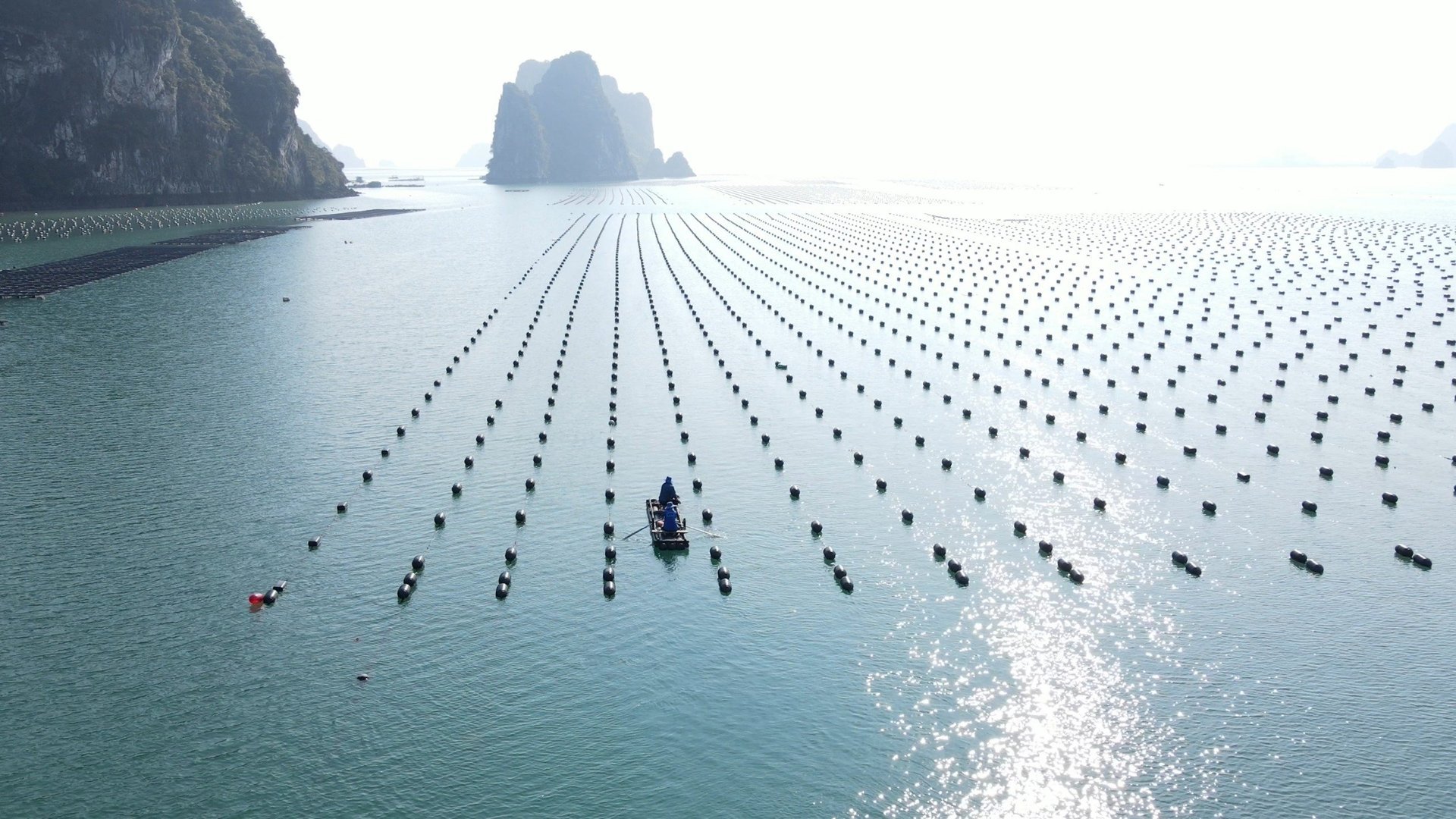
Vietnam's sea is three times larger than its mainland, but we have only exploited a very small part. The rest is waiting to be cultivated, invested in, and awakened with a new vision. Photo: Hong Tham .
Second, people are always short of capital. When the right to use the sea area is established, the “green book” will also become a legally valuable asset, helping people to contribute capital, mortgage to borrow money from banks… Only then can people invest in infrastructure and regular production costs.
Third, to convert the current small, fragmented marine farming areas into planned, carefully designed farming areas, it is necessary to establish marine farming industrial clusters and industrial zones, with two components: at sea and on land.
Mr. Dung analyzed that when these industrial clusters are formed, businesses, cooperatives and fishermen will be able to rent ready-made infrastructure, reducing the pressure of investing in cages and rafts, focusing capital on production and business. Labor is professionalized, using modern technology to monitor livestock, fishermen do not have to sleep at sea to guard the farms, thereby reducing pollution and waste on the water surface. In these marine farming industrial clusters, the marine farming process will follow common standards, forming a large, concentrated, and uniform quality seafood output - meeting the requirements of traceability and evaluation according to international standards.
Not only that, the model of industrial clusters and marine industrial parks also has special significance in terms of sovereignty. When built at the edge of the exclusive economic zone, they will be like “living landmarks” at sea, affirming Vietnam’s presence and sovereignty over a water area three times larger than its land area - more than 1 million km² compared to about 328,000 km² of land.
Fourth, change the way environmental impact assessment is done. Currently, Vietnam requires businesses and people to prepare their own environmental impact assessment reports even though they have not been licensed or have not yet started farming, leading to many problems, while this is a complex scientific activity. In many countries, it is the state management agency that conducts research, determines the environmental load of each sea area and then allocates it appropriately to farming units. Therefore, Vietnam needs to issue specific standards and regulations on environmental impact in marine farming, avoiding putting this burden on the people.
Fifth, promote science and technology, digital transformation and green transformation. Currently, Vietnam does not have a training program for engineers specializing in industrial aquaculture at sea. Therefore, it is necessary to invest early in research, digital transformation, human resource training and innovation.
The final and fundamental solution is to improve the management system. Currently, we are managing this field very loosely according to the administrative system, while marine farming is a technical field that requires specific standards and regulations for practical management.
Vietnam's sea is three times larger than its mainland, but we have only exploited a very small part. The rest is waiting to be cultivated, invested in, and awakened with new visions.
Marine farming is not only aquaculture, but also farming the future, farming peace, farming the pride of a nation that knows how to appreciate every drop of water, every inch of land. Because "land" and "water", as well as people and the ocean, are forever blended in one sacred name - "Vietnam".
On the occasion of the 80th anniversary of Agriculture and Environment Day and the 1st Patriotic Emulation Congress, the Ministry of Agriculture and Environment will organize a series of events from July to December 2025. The focus will be on the 80th anniversary of the Agriculture and Environment sector and the 1st Patriotic Emulation Congress, held on the morning of November 12, 2025 at the National Convention Center (Hanoi) with more than 1,200 delegates attending. Agriculture and Environment Newspaper will broadcast this event live.
Source: https://nongnghiepmoitruong.vn/mo-loi-cho-canh-tac-bien-viet-nam-d781187.html



![[Photo] Cutting hills to make way for people to travel on route 14E that suffered landslides](https://vphoto.vietnam.vn/thumb/1200x675/vietnam/resource/IMAGE/2025/11/08/1762599969318_ndo_br_thiet-ke-chua-co-ten-2025-11-08t154639923-png.webp)








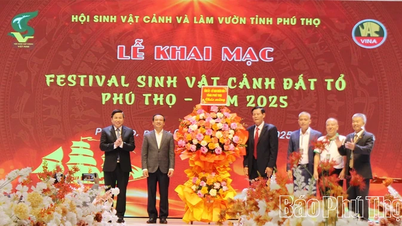







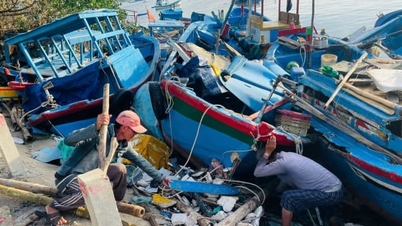




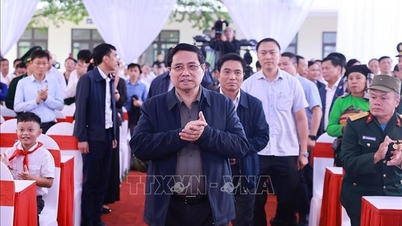
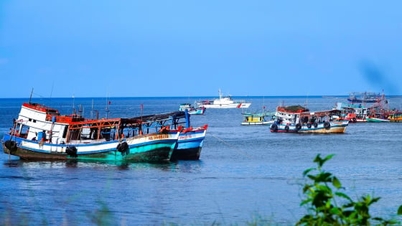




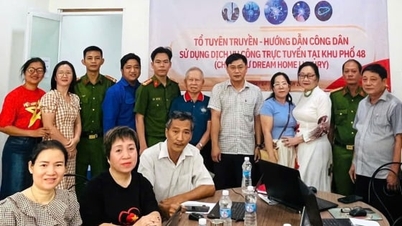
![Businesses creating a green future: [Part 1] Carbon-neutral flagships](https://vphoto.vietnam.vn/thumb/402x226/vietnam/resource/IMAGE/2025/11/09/1762651276876_5429-th-27-nongnghiep-125419.jpeg)














![[Video] Hue Monuments reopen to welcome visitors](https://vphoto.vietnam.vn/thumb/402x226/vietnam/resource/IMAGE/2025/11/05/1762301089171_dung01-05-43-09still013-jpg.webp)



























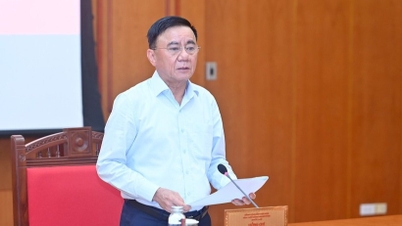

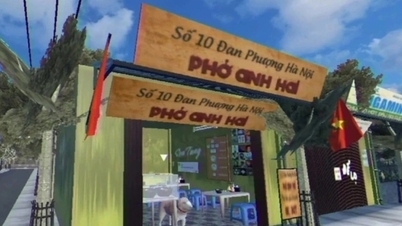



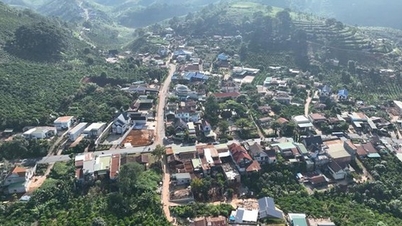
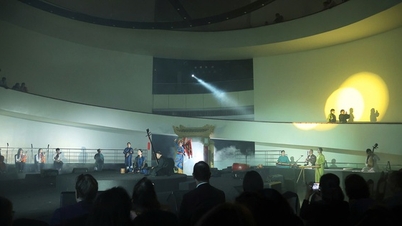
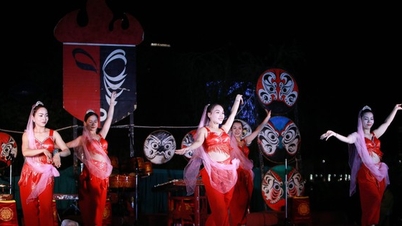





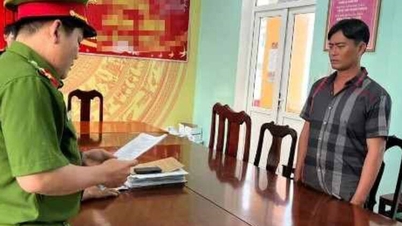





![Dong Nai OCOP transition: [Part 2] Opening new distribution channel](https://vphoto.vietnam.vn/thumb/402x226/vietnam/resource/IMAGE/2025/11/09/1762655780766_4613-anh-1_20240803100041-nongnghiep-154608.jpeg)









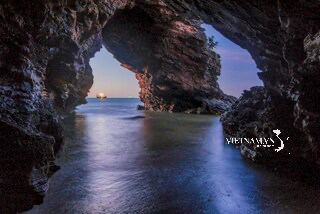



Comment (0)